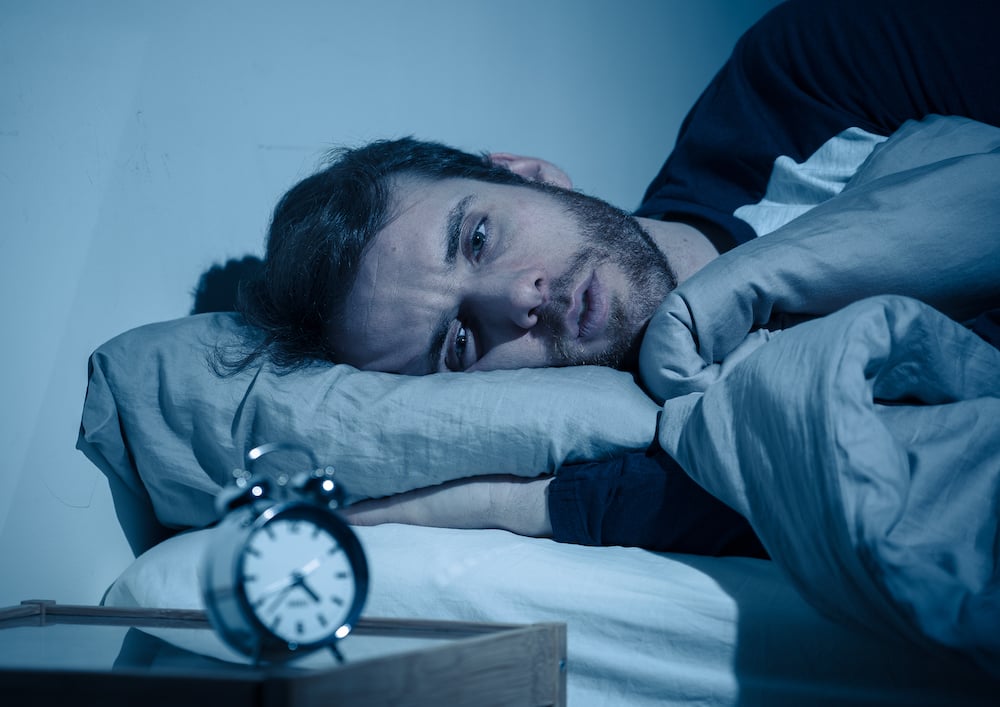Good sleep is mandatory if you ever wish to boost your concentration and productivity as well as reduce the risks of stroke and heart disease. To have a good rest, you must also create a good sleep pattern that won't interrupt your Rapid Eye Movement (R.E.M.) sleep stages.
Related Blog: What is R.E.M. During Sleep?
This is particularly important since if you interrupt your R.E.M., you'll not only wake up feeling weighed down but also groggy without any motivation to do anything productive in your day-to-day life. To understand why you shouldn't interrupt your R.E.M. cycle, we've broken the sleep cycle into three stages of the R.E.M. cycle. In this guide, you'll learn all the activities that take place at each stage.

The Stages in R.E.M. Cycle
First, things, first. It would take you around 15 minutes from the time you lay on your bed to fall asleep. Unless there are underlying problems like insomnia, your sleep cycle will begin in this pattern.
1. The Initial Stage of REM Sleep
After you've closed your eyes and fallen asleep, you'll go through the initial phase, which would last between five to ten minutes. It's during this stage when you're more likely to wake up suddenly due to interruptions around you or noises. If you wish to navigate to the second stage in your R.E.M. cycle, you must stay asleep irrespective of the distractions around you.
To avoid bedtime distractions, turn off your radio, T.V. and other electronic devices before going to sleep, be sure to wear comfortable sleepwear too.
2. The Light Sleep Stage
At this stage, you'll be in light sleep, your body temperature will slightly drop, and your heart rate will also slow down so you can fall asleep. During this phase, you must avoid distractions so you can get proper rest and body healing for a good sleep.
3. Deep Sleep
At step three, you've fallen asleep, your body is in a deep sleep, and it's hard to be woken up. It's also at this stage where the major body and mind healing takes place.
Your mind needs to function correctly at this stage to keep you asleep. If you wake up during this stage, the sleep pattern will be disoriented, and your body will not function well upon awakening. If you’ve ever woken up in a daze and maybe confused, then you were probably disturbing deep sleep.
You'll feel drowsy, extraordinarily tired, and even get muscle stiffness hence the feeling of just getting back to sleep. It's imperative that you stay asleep during this phase since your body craves for this type of rest to allow room for full repair of your internal organs, body tissues, muscles, bones, and the immune system.

How to Get Asleep and Stay Asleep Easily
Apart from the occasional distractions and sudden noises, there are a few extra factors that may also influence your sleep patterns in these stages. To maintain the pattern, you must deal with these factors. Here's a rundown of a few tips to help you get asleep and stay asleep with ease.
Avoid Caffeine during the Late Hours of the Day
Studies show that caffeine can impact your quality of sleep. It can also last up to ten hours in your body after consumption. It's recommendable that you avoid them at least five to six hours before bedtime.
Take your dinners early
It's prudent that you take your dinners around two to three hours before bedtime. This will help you significantly reduce the risks of gastroesophageal reflux syndrome, a condition that would make you have disturbed sleep patterns.
Get a comfortable mattress
If you have a mattress that develops compressions when you sleep, it increases the risks of creating sleep discomfort. This may even progress to back problems that will not only impact your sleep quality but also make you feel sick.
When choosing a mattress, it would be better if you test the mattresses before making a purchase, and consider the material to avoid any allergic complications. If you’re ready to test some out and sleep better tonight. Visit us at one of our Southwest Florida locations today!




